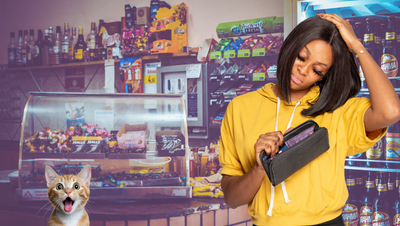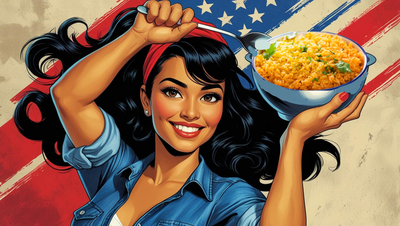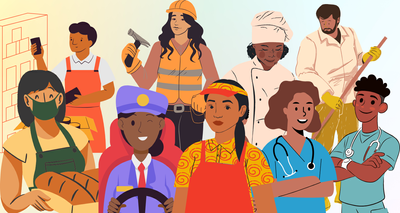As the U.S. economy navigates through a period of economic instability, a recent report published in early September 2023 by a leading international institution in the field of banking, Goldman Sachs, concluded that the probability of an economic recession in the United States over the next 12 months stands at just 15 percent. These updated findings provide a glimmer of hope in contrast to previous forecasts, such as that of a Wall Street bank, which had indicated a 20 percent probability.
With growing concerns of a U.S. recession looming, there are some notable Latinas who are helping the U.S. economy. Latinas are making a significant impact not only in creating jobs but pumping money into the economy.
Goldman Sach’s report, titled "Soft Landing Summer," outlines the measures taken to address inflation without jeopardizing the economy, as reported by the news portal CNN.
Latinas shining amidst economic uncertainty
Karol G, the prominent Colombian singer, continues to shine amid economic uncertainty in the United States. Her successful "Mañana Será Bonito" Tour is a testament to this. This artist, known for her distinctive "paisa" accent, has garnered the affection of millions of fans worldwide, including her substantial fan base in the United States.
Last year, "La Bichota" made history with her "$trip Love Tour." This tour became the highest-grossing tour by a Latina artist in the United States, amassing an impressive total of over $69.9 million in 33 concerts. Her success not only underscores her musical talent but also her economic and cultural impact on the Latina community and the music industry in the United States.
@alexandjessicaa I cant believe the karol g tickets sold out like that 😩
♬ original sound - Alex&Jessica
This year, the artist, recently nominated for seven Latin Grammy Awards, set several attendance records with her "Mañana será bonito" tour. Tickets for the concerts sold quickly, and some events were completely sold out. A noteworthy example was the Rose Bowl Stadium in Pasadena, California, with a capacity of 80,000 people, where all tickets were sold, as well as Levi's Stadium, which attracted 45,000 fans. This accomplishment made Karol G the first Latina artist to sell out Levi's Stadium in the Bay Area. Additionally, at the Cotton Bowl Stadium in Dallas, the singer managed to gather an approximate crowd of 70,000 people. Artists like Karol G don’t just pump into the economy by selling out stadiums. They stimulate it with tourism by fans traveling, buying out hotel rooms, shopping and eating local. Some of the cities La Bichota toured to were smaller and this type of tourism helped a lot.
Credit - Instagram @karolg.news
La Bichota has served as an economic inspiration for the Latino community in the United States. In the case of Gudelia and Soraya Aguilar, residents of San Bernardino, California, and founders of GG Boutiquee, an online store where they showcase various collections inspired by the performer of the song "Ocean." The sisters attended the opening concert of the 2023 tour in Las Vegas and also made it to the Rose Bowl. They even sold out of their Karol G-inspired outfits, specifically designed for attending her concerts, known as the "Besties Collection," as reported to the Los Angeles Times.
Recently at a Congressional Hispanic Caucus panel for Latino entrepreneurship in the digital age Toni Lee Jimenez co-founder of beauty brand Chica Beauty said Latinas are the future of this country’s economy. In support of her thoughts, fellow panelist Rodrigo Salas, founder of non-profit Entrepreneurship For All said more than half of new businesses started in the U.S. are Latina-owned.
“Latinas are starting more businesses today than Latinos, in general, the Latino population is driving the entrepreneurial journey,” said Salas. “What’s interesting [is] that Latinas are not only starting businesses but they also continue with their family and have a full-time job– they are like super Latinas.”
Another example of how the artist has served as an economic inspiration can be seen in the following video, where Alexandra Lourdes, the owner of Café Lola in Las Vegas, created donuts inspired by her "Mañana Será Bonito" tour. According to Lourdes, the donuts sold out, and they were even sent to the singer.
@alexandra_lourdes Omg a dream come true 🥹❤️ HOPE U LOVE THEM!!! #donut #donutshop #vegas #vegasfood #karolg #latinaownedbusiness #latina #bichota #allegiantstadium #mananaserabonito
♬ AMARGURA - KAROL G
Latinas are making significant contributions in the political sphere of the United States, and a notable example is Dr. Adriana Kugler, a U.S. citizen with Colombian roots. Kugler has achieved a significant milestone by being nominated by President Biden and appointed by the United States Senate as a governor of the Federal Reserve. This historic appointment makes her the first Latina woman to join the Federal Reserve Board since its establishment 110 years ago on December 23, 1913. Her achievement represents a notable advancement in inclusion and diversity within one of the country's most important financial institutions.
The 53-year-old expert in labor and international economics assumed her position as a member of the Board of Governors of the Federal Reserve System on September 13, 2023 and it’s expected to end on January 31, 2026. Prior to this appointment, Dr. Kugler served as the Executive Director for the United States at the World Bank Group and holds a position as a professor of Public Policy and Economics at Georgetown University, where she also served as the Vice Dean of the Faculty.
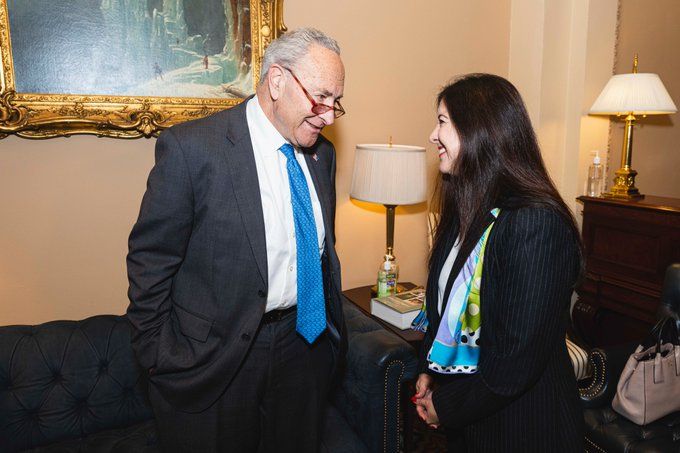
Some hope that Kugler’s expertise in unemployment, immigration, U.S. and global labor markets will give her a unique lens that will help diversify the U.S. Federal Reserve board and help tame the all-time-high inflation rates. Furthermore, in the realm of labor, she held the position of Head of the Department of Labor in 2012, during which she focused on promoting economic development policies. According to The Wall Street Journal, Kugler believes in redistributive policies in the United States fiscal policy. She advocates for a more progressive tax system and healthcare programs for the impoverished.
Are Latinas really pumping into the U.S. economy?
According to McKinsey & Company's analysis, U.S.-born Latinos constitute the fastest-growing segment of the country's GDP. The global management consulting firm has pointed out that if U.S. Latinos were considered as a larger entity, their economy would rank third in terms of GDP growth of $3 Trillion over the past decade, surpassing even France and following closely behind China and India.
The report suggests that Latino businesses have the potential to generate an extra $2.3 trillion in total revenue. This growth could lead to the creation of 735,000 new businesses, resulting in the support of 6.6 million new jobs. Additionally, the annual transfer of net wealth among Latinos from one generation to the next could increase by $380 billion.
Despite the economic growth within the Latino community, the analysis has indicated that Latino consumers often find themselves dissatisfied with the products available to them. This dissatisfaction creates an opportunity for new entrepreneurs who genuinely understand their needs and provide alternative options. These alternatives can range from food and beauty products to financial services.
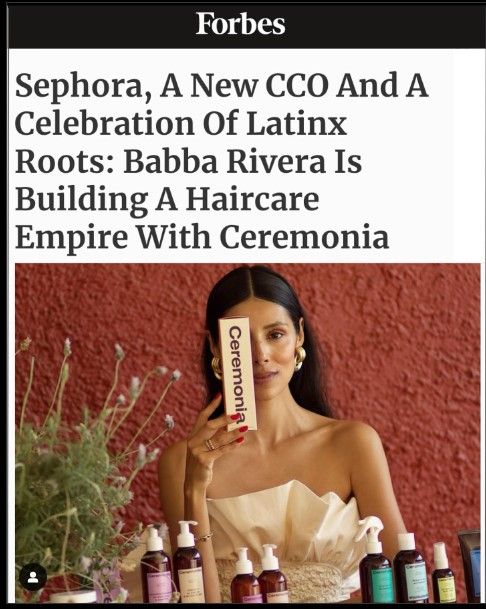
The Latino community currently represents the most entrepreneurial group in the U.S, but they face challenges that hinder their substantial growth and, in some cases, force business closures. One of the primary challenges is access to capital, as Latino and Black-owned businesses have the lowest approval rates for bank loans compared to other demographics. Additionally, according to the 2022 "Small Business Credit Survey" published by the Federal Reserve Banks, both Latino and African American-owned businesses have the lowest percentages in obtaining non-repayable funds such as grants and the Paycheck Protection Program (PPP).
In Graph I, it's evident that Asians and white entrepreneurs received over 70 percent of non-repayable funds, while businesses led by Latinos and African Americans received only about 50 percent. The report also highlights in Graph II that non-white-owned businesses had less than twice the likelihood of approval for any type of bank financing from small banks and financial companies.
This imbalance underscores the need to address disparities in access to funding to ensure an equitable and diverse business environment in the United States. Despite the challenges, Latinos continue to embark on entrepreneurial journeys and reshape the economy. Over the past decade, the number of businesses created by Latinos has impressively increased by 44 percent, showcasing their unwavering entrepreneurial spirit. Currently, these entrepreneurs lead nearly 2 million businesses across the country, generating employment opportunities and paving the way for the Latino community in sectors where their presence was once unthinkable. This growth not only benefits Latino entrepreneurs but also enriches the diversity and vitality of the overall U.S. economy, demonstrating that perseverance and a passion for success are truly unbreakable traits within the Latino community.


